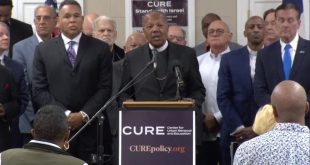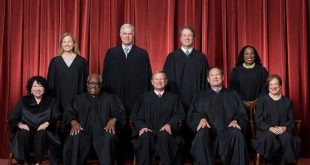The U.S. Constitution contains no such language or concept of separation of church and state. In 1802, President Thomas Jefferson wrote to the Danbury Baptist Association in Connecticut to assure them that the central government wouldn’t infringe on their First Amendment right to freely exercise their religion.
He wrote that the Establishment and Free Exercise Clauses built “a wall of separation between Church & State,” that, literally, “Congress shall make no law” that infringes on these rights or establishes a religion.
The Constitution’s drafters did not forbid the government from having anything to do with religion.
But the U.S. Supreme Court invented a “test” to determine whether a law violated the Establishment Clause. If the law didn’t have a secular purpose, advanced or inhibited religion, or resulted in “excessive government entanglement” with religion, it was unconstitutional. The court ruled, for example, that reimbursing teachers in religious schools with federal funds violated this clause.
The Trump administration might ease some of the invented separation-of-church-and-state rules that bar religious schools from receiving federal dollars. The text of the proposed rule (emphasis added):
Various provisions of the Department’s regulations regarding the eligibility of faith-based entities to obtain grants from the Department or to participate in State-administered programs and the activities that they may perform unnecessarily restrict participation by religious entities in the Department’s grant programs by including requirements specific to such entities. The Department plans to review and to amend or rescind such regulations in order to be consistent with current law and to reduce or eliminate unnecessary burdens and restrictions on religious entities and activities.
From the Hill:
Such deregulation could open up some faith-based programs to federal funding from the Education Department.
Still, religious higher education institutions largely choose not to seek federal funding in order to steer clear of having to follow federal civil rights laws.
…
The proposed rule change marks the latest regulatory rollback recommended by the Education Department since President Trump took office.
Photo credit: American Life League (Creative Commons) – Some Rights Reserved
 CURE News and Clergy Blog News and Commentary for Christians
CURE News and Clergy Blog News and Commentary for Christians



